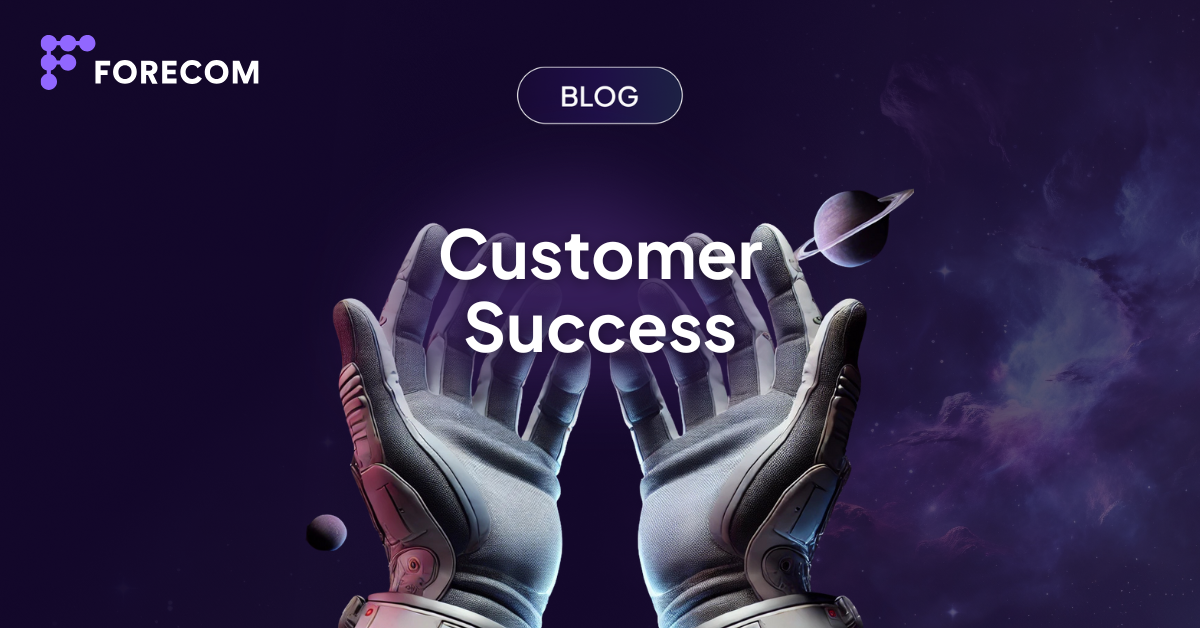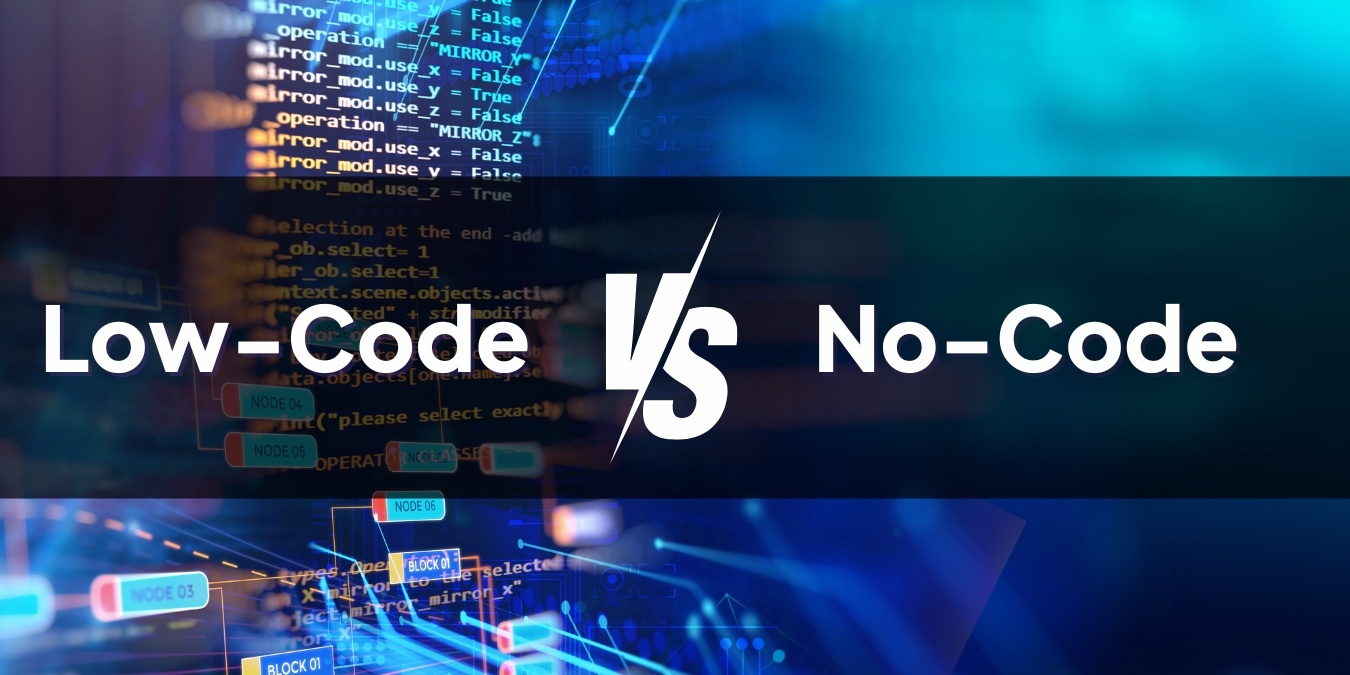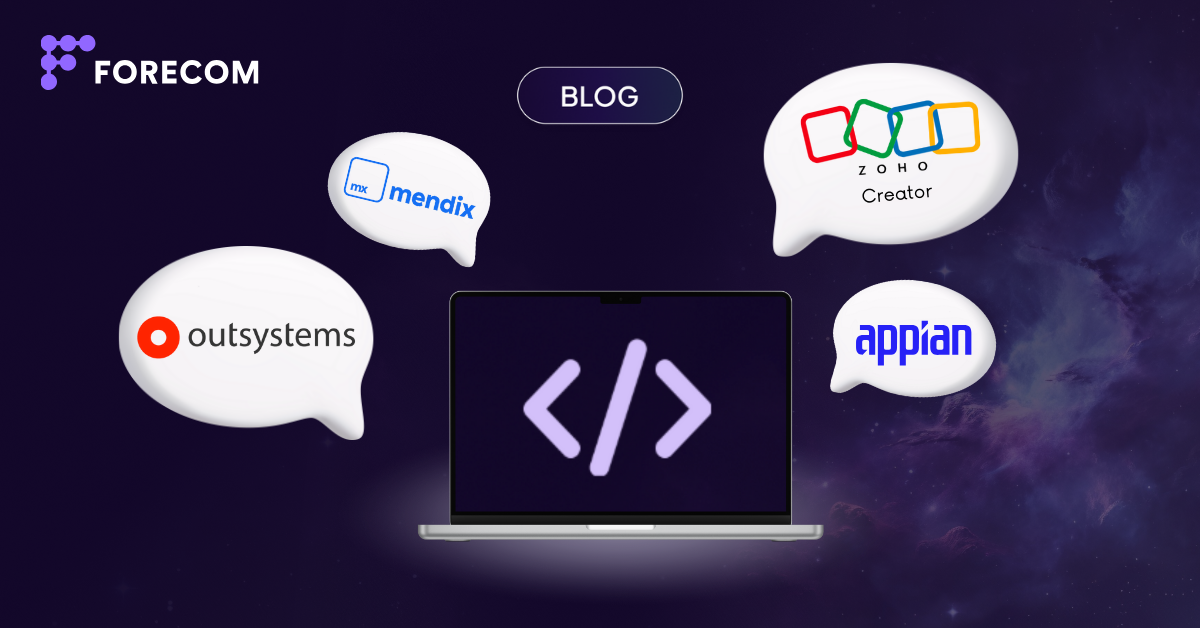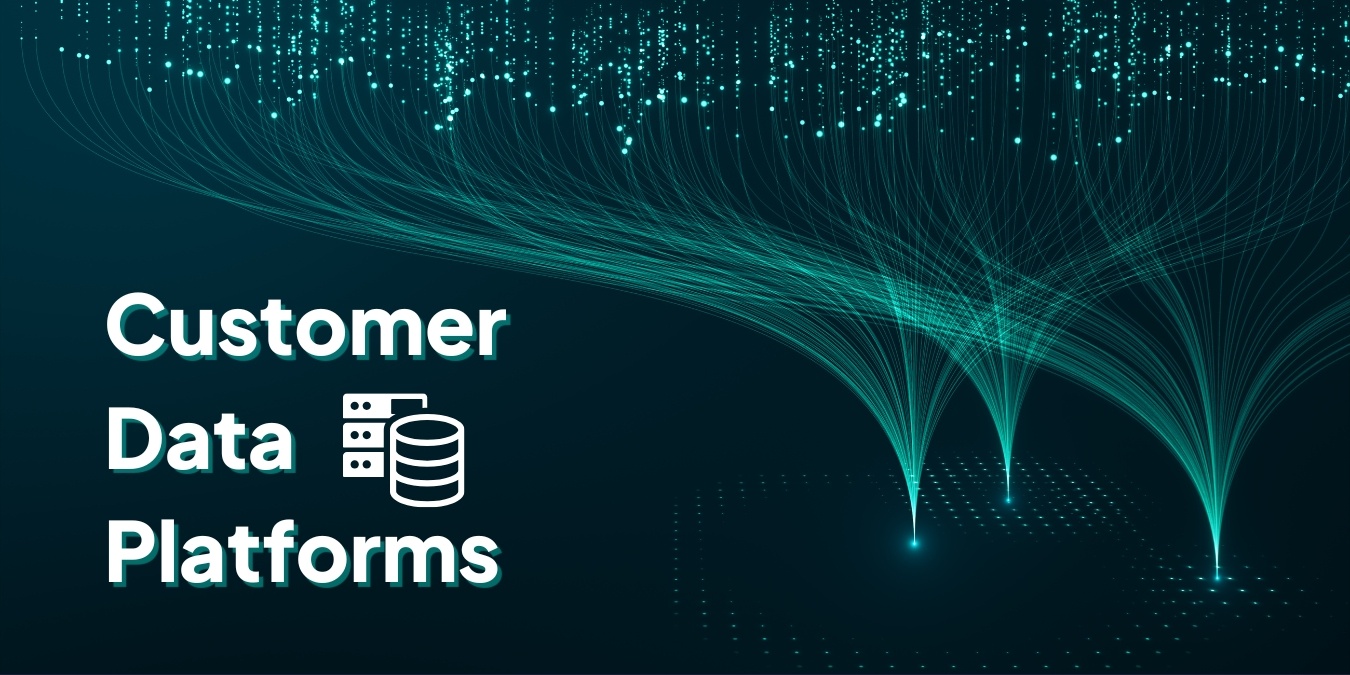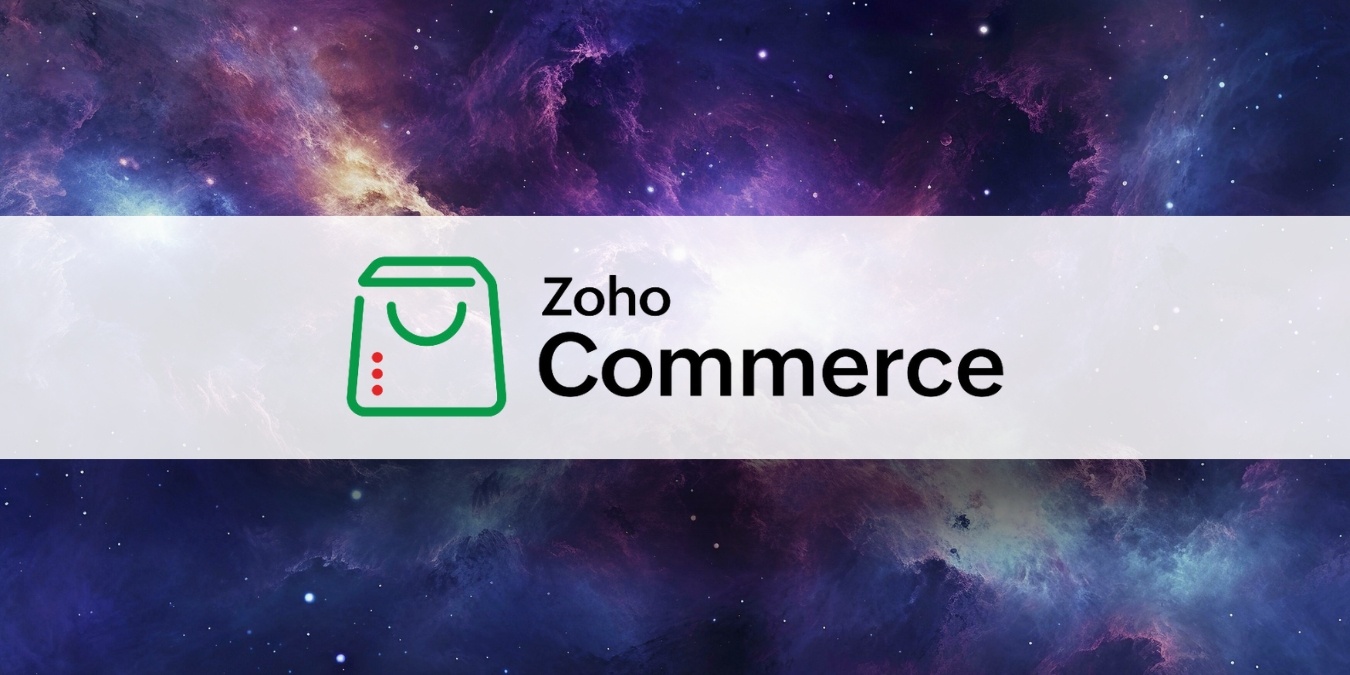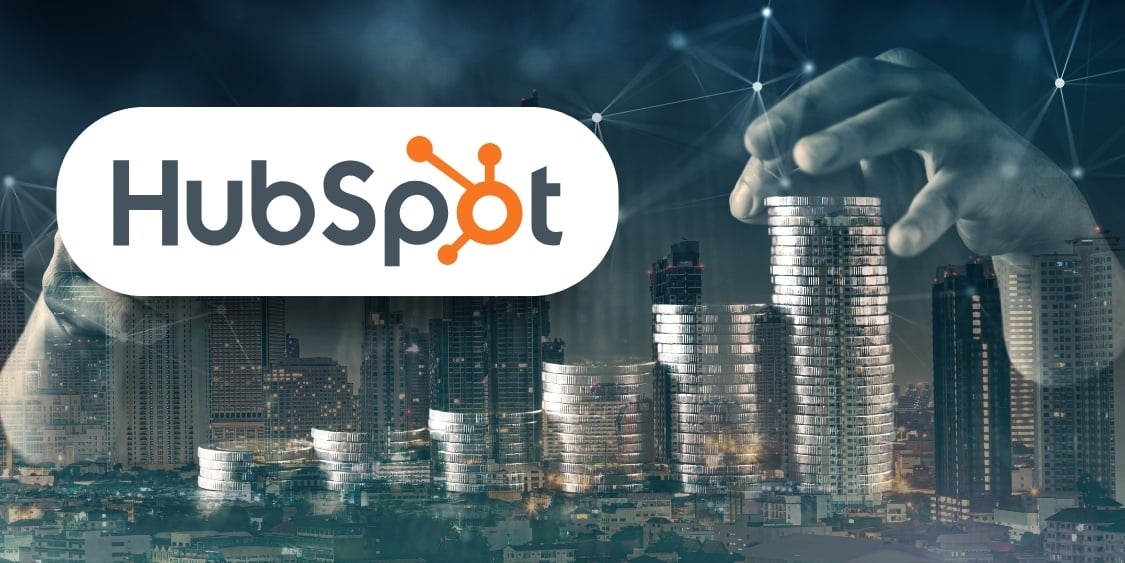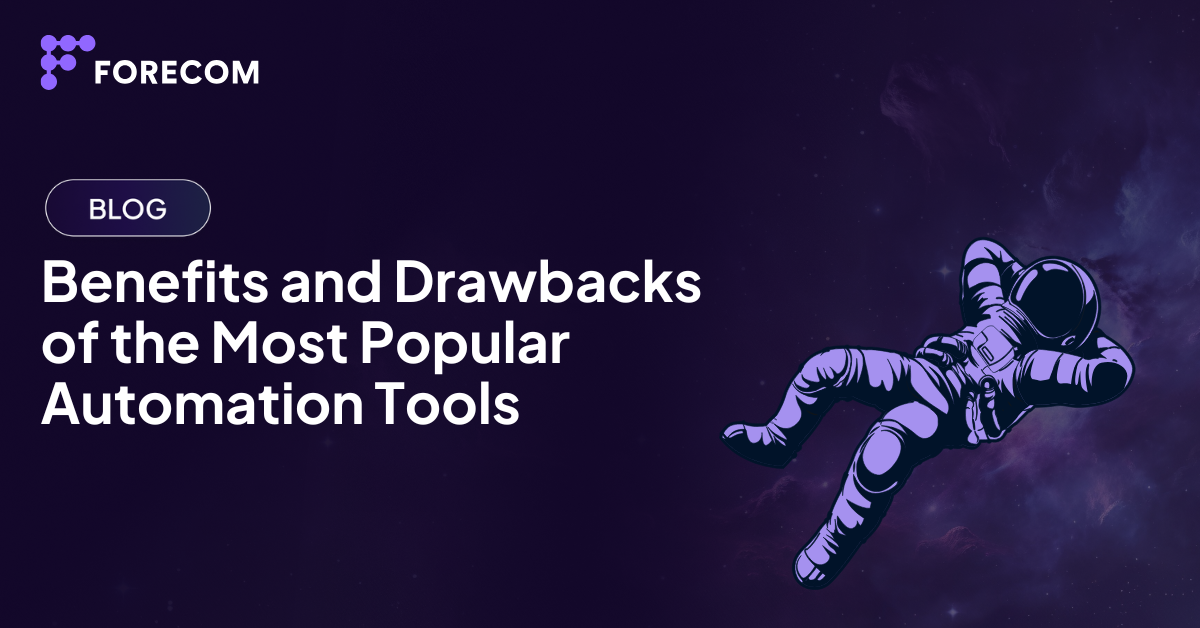In this article, I’ll walk you through some of the most popular automation tools available today. We’ll take a closer look at their background, key features, and pricing to help you make an informed choice.
Table of Content
Introduction
We all strive to work smarter, not harder. That's where automation tools come into play, offering a significant boost in how we handle tasks and processes. In this article, we'll dive into these tools, shining a light on some of the most popular choices available today.
This post aims to introduce you to the world of automation tools and help you find the right technologies that align with your business's needs.
What are Automation Tools?
Automation tools are technologies that streamline processes in businesses by automating tasks that were traditionally done manually. These tools help increase efficiency, accuracy, and speed while reducing the need for human intervention in repetitive tasks.
They play a crucial role in various business functions such as marketing, customer service, and operational processes.
By leveraging automation tools, businesses can focus on strategic activities, enhance customer experiences, and achieve greater operational agility. These tools are essential in today's business environment, enabling companies to stay competitive and responsive to changing market demands.
Leading Automation Tools

HubSpot
HubSpot, a leader in the marketing and sales automation landscape, was co-founded in 2006 by Brian Halligan and Dharmesh Shah. The company originated with a vision to align with the changing marketing trends, specifically focusing on inbound marketing as opposed to traditional outbound methods.
HubSpot's platform was designed to assist businesses in attracting, engaging, and delighting customers through various digital channels, including email, social media, and the web. Many of its features across all hubs (e.g. Marketing, Sales, Customer Service Hubs…), are AI-powered, making various tasks from content creation to sales tasks easier.
The platform integrates a range of automation tools aimed at streamlining marketing, sales, and customer service processes. These include advanced features for email marketing, web page creation, lead generation, CRM, and more, all centralized in an intuitive, user-friendly interface.
Over the years, HubSpot has expanded its offerings, adding new tools, integration options, and features that support the evolving needs of businesses of all sizes. Its commitment to providing comprehensive automation solutions has established HubSpot as a go-to platform for businesses looking to enhance their digital marketing and sales strategies.
ActiveCampaign
ActiveCampaign, established in 2003 by Jason VandeBoom, started as a consulting firm and evolved into a provider of marketing and sales automation solutions for small and medium-sized businesses. The company's transition to a software-as-a-service (SaaS) model marked its dedication to simplifying marketing tasks and improving customer experiences.
ActiveCampaign distinguishes itself through its user-friendly platform, offering a comprehensive suite of tools including email marketing, sales automation, and CRM. It's known for its adaptability, integrating with over 850 applications such as Slack and Salesforce, and is recognized for its commitment to enhancing customer engagement through automation.
Under the guidance of VandeBoom, ActiveCampaign has made a significant impact in the automation industry. It stands as a reflection of his vision to provide streamlined and effective marketing automation solutions, catering to a diverse range of industries worldwide.
The platform's emphasis on user experience and operational efficiency has established ActiveCampaign as a preferred choice for businesses looking to optimize their marketing and sales processes.
Marketing Cloud Account Engagement (formerly Pardot)
Marketing Cloud Account Engagement, or MCAE, a prominent marketing automation platform, is a Salesforce product designed to empower businesses in their digital marketing efforts. Focused primarily on B2B marketing, the platform offers a range of automation and AI-supported tools that assist in lead generation, email marketing, and streamlined sales processes. Its integration with the Salesforce ecosystem allows for a seamless flow of information and enhanced customer relationship management.
The platform stands out for its advanced features tailored to the needs of B2B marketers, including lead scoring, nurturing programs, and ROI reporting. Marketing Cloud's user-friendly interface and deep analytics capabilities enable marketers to create personalized customer journeys and track the effectiveness of their campaigns.
Over time, the system has become a vital tool for businesses looking to automate their marketing processes and align sales and marketing teams for more effective collaboration and improved outcomes.
Adobe Marketo Engage
Marketo, an Adobe company, is a prominent figure in the marketing automation landscape. Founded in 2006, Marketo quickly established itself as a go-to solution for businesses seeking to automate and streamline their marketing efforts. It is important to note that Marketo is also mostly used for B2B sales, meaning it’s less helpful to ecommerce companies and other businesses that want to sell straight to consumers.
Overall, the platform is widely recognized for its comprehensive suite of tools that cater to various aspects of digital marketing, including email marketing, lead management, lead nurturing, and performance measurement.
One of the key strengths of Marketo lies in its ability to facilitate targeted, personalized marketing campaigns. The platform offers AI-powered, robust analytics and lead-scoring capabilities, enabling businesses to make data-driven decisions and effectively track the ROI of their marketing initiatives.
Additionally, Marketo's integration capabilities, particularly its seamless synchronization with CRM systems, make it a versatile choice for organizations looking to enhance both their marketing and sales processes. The platform is also known for its scalability, making it a suitable choice for both small businesses and large enterprises.
Zapier
Zapier, founded in 2011, has emerged as a pivotal player in the automation tool industry, offering a unique approach to streamlining workflows and integrating various web applications. Unlike traditional marketing or CRM-focused automation platforms, Zapier specializes in connecting different apps and automating tasks across them, effectively creating a bridge between over 3,000 web services.
Zapier's standout feature is its ability to automate repetitive tasks without the need for coding. Users can set up "Zaps" — automated workflows — that trigger actions in one app based on changes or updates in another. This can range from simple tasks like automatically saving email attachments to Google Drive to more complex workflows involving multiple steps and applications.
The platform is suitable for a wide range of users, from individual professionals to larger businesses, offering customizable solutions to fit varied automation needs. Its ease of use, combined with the vast array of integrations, makes Zapier a versatile tool, enabling users to automate almost any aspect of their digital workflows and enhance productivity.

Klaviyo
Klaviyo is a powerful marketing automation platform that has carved out a significant niche in the e-commerce sector. Founded in 2012, Klaviyo focuses on delivering sophisticated email and SMS marketing solutions tailored to the unique needs of online retailers.
The platform stands out for its deep integration capabilities with e-commerce platforms like Shopify, Magento, and WooCommerce, allowing businesses to leverage customer data for highly personalized marketing campaigns.
A key feature of Klaviyo is its advanced segmentation and targeting capabilities, enabling users to create dynamic customer segments based on shopping behavior, browsing activity, and other custom attributes. As other platforms, it also has AI-powered features that make content creation easier and more personalized.
Lastly, Klaviyo provides robust analytics tools, giving businesses valuable insights into campaign performance and customer interactions. Overall, Klaviyo's user-friendly interface and focus on data-driven marketing strategies make it a popular choice among e-commerce businesses.
Mailchimp All-in-One Marketing Platform
Mailchimp, a well-known marketing automation and email marketing platform, was founded in 2001 by Ben Chestnut and Mark Armstrong. Originally part of the Rocket Science Group, Mailchimp was named after a popular e-greetings card character.
The platform initially started as a paid service and introduced a freemium option in 2009, leading to rapid user growth. In 2019, Mailchimp signaled a strategic shift from mail distribution to offering a more comprehensive marketing platform, targeting smaller organizations.
This expansion included acquisitions like LemonStand, a smaller competitor, and Courier Media, a London-based media company, to support international growth. Mailchimp's journey as a bootstrapped startup without outside funding or plans to go public ended in 2021 when it was acquired by Intuit for approximately $12 billion.
In summary, Mailchimp is a comprehensive automation platform that goes beyond just email automation. Thanks to its Customer Journey Builder feature, firms can map out and automate their entire customer journey across various marketing channels, including social media.
Pricing
Here's an overview of the general price ranges for each of the automation tools. Keep in mind that these prices are up to date as of the date of the publication, but they might change in the future.
For the most current information, you can check out the price lists on the platforms' websites that I've linked below each tool.
HubSpot
HubSpot offers a range of automation features within its different plans. While basic automation capabilities are available in their free plan, more advanced automation features are part of their paid plans.
- Free Plan: HubSpot offers a free plan that includes basic automation features. This might be a good starting point for small businesses new to automation.
- Starter Plan: At $15/user per month, the Starter plan offers more robust automation features, suitable for small businesses looking to expand their automation capabilities.
- Professional Plan: Priced at $800 per month, this plan provides advanced automation features, ideal for growing businesses with more complex needs.
- Enterprise Plan: For $3,600 per month, the Enterprise plan offers comprehensive automation solutions for large businesses or those with intricate automation requirements.
For more specialized automation needs, HubSpot provides add-ons and more tailored solutions, especially for larger or enterprise-level businesses.
To see the latest on what HubSpot offers and at what price, check their pricing page here: HubSpot Price List.
ActiveCampaign
ActiveCampaign offers varied pricing plans tailored for different business sizes, focusing on automation and email marketing.
- Lite Plan: Starts at $29 per month for up to 1000 contacts, suitable for basic automation.
- Plus Plan: This plan starts at $49 per month. It is geared towards mid-sized businesses and includes advanced automation and CRM features.
- Professional Plan: Starting at $149 per month, the professional plan offers extensive automation tools and support for larger campaigns. Includes predictive sending and web personalization.
- Enterprise Plan: The most comprehensive package starts at $259 per month, customized for large businesses with complex needs. Includes unlimited features and personalization options.
Pricing for each plan depends on the number of contacts and users. Additionally, ActiveCampaign offers transactional email services as add-ons.
For the latest pricing, visit: ActiveCampaign Pricing.
Marketing Cloud Account Engagement (formerly Pardot)
MCAE, known for its B2B marketing automation, offers various plans to suit different business sizes and needs:
- Engagement Plan: Priced at $1,250 per month, this plan includes up to 10,000 contacts and features like email marketing, lead generation, A/B testing, and basic analytics.
- Growth Plan: At $1,500 per month, on top of the Engagement Plan, you get AI-supported content creation, lead generation, and multi-channel journey functions.
Salesforce also offers more advanced plans for bigger corporations. They are specifically tailored to meet the need for advanced analytics.
For more detailed feature and plan information, visit the Salesforce pricing page: Marketing Cloud Account Engagement Pricing.
Adobe Marketo Engage
The company does not publicly disclose Marketo's pricing. We have found estimated pricing in Marketing Automation Insider's Marketo Review, which are as follows:
- Basic Tier: Around $895/month, offering essential marketing automation features for smaller businesses.
- Mid-Tier: Estimated at $1,795/month, unlocking additional capabilities suitable for experienced marketing professionals.
- Top Tier: Around $3,175/month for the most comprehensive features.
However, the blog post is from 2023, so the prices are likely higher now. For the latest pricing, contact Marketo directly.
Zapier
Zapier offers various pricing tiers to accommodate different business needs:
- Free Plan: Ideal for basic automation needs, allowing users to create simple workflows.
- Professional Plan: Starting at $19.99/month, this plan is designed for more advanced automation with access to premium apps. Perfect for individuals.
- Team Plan: Starting at $69/month, this plan is tailored for teams needing collaborative features, shared workflows, and unlimited users.
- Company Plan: With custom pricing, this plan is best suited for large organizations requiring extensive automation capabilities and dedicated support.
To explore the latest pricing, visit Zapier's Pricing Page.
Klaviyo
Klaviyo has a range of pricing plans based on the number of contacts you have in your database.Here's an overview of their pricing tiers:
- Free Plan: Ideal for small businesses or those just starting with email marketing, offering basic features.
- Email Plan: Starting at $20 per month for 251 - 500 contacts, this plan is designed for advanced email marketing needs.
- Email and SMS Plan: Beginning at $35 per month, this plan allows businesses to reach customers through both email and SMS. However, the SMS service is restricted to countries like the U.S., Canada, the U.K., and other major English-speaking countries.
For more information on Klaviyo's latest pricing and plans, visit Klaviyo Pricing.
Mailchimp All-in-One Platform
Mailchimp's pricing structure for its All-in-One Marketing Platform offers many options.
Please note that the prices below are based on up to 500 contacts - if you have more, the prices go up:
- Free Plan: Suitable for new marketers with basic requirements, offering 1,000 monthly emails. It includes features like landing pages, basic reports, and single-step automation but has Mailchimp branding on communications.
- Essentials Plan: Starting at $13/month for up to 5,000 monthly emails. This plan removes Mailchimp branding and offers additional features like A/B testing and access to all email templates.
- Standard Plan: Priced from $20/month for up to 6,000 emails per month. It includes dynamic content, send-time optimization, pre-built journeys, and more advanced features suited for SMBs and startups. It also includes generative AI features.
- Premium Plan: Starting at $350/month, this plan targets teams and large businesses with Mailchimp’s most advanced tools and includes unlimited contacts, 150,000 monthly email sends, phone priority support, and comprehensive features like multivariate testing and advanced segmentation.
- Custom Plans – Pay As You Go: For those with irregular sending patterns, Mailchimp offers a pay-as-you-go option where you can buy enough credits to cover your email marketing needs, with the same features as the Essentials plan.
Transactional emails and SMS marketing are available as add-ons in Mailchimp.
For the most accurate and up-to-date pricing, visit Mailchimp's Pricing Page.
Summary
Automation tools are more vital than ever for businesses looking to enhance efficiency and streamline their operations. From email marketing to comprehensive CRM solutions, these tools offer a range of features tailored to various business needs.
HubSpot, ActiveCampaign, and MCAE provide robust marketing automation platforms suitable for businesses of all sizes. A significant advantage of these solutions is their integration with existing CRM systems, making them ideal for those seeking a more comprehensive solution beyond just marketing.
Adobe Marketo Engage and Klaviyo focus on advanced marketing automation, with Klaviyo excelling in e-commerce integrations. Meanwhile, Zapier stands out by connecting various web applications, automating tasks across different platforms.
Mailchimp remains a versatile all-in-one platform favored by small businesses, offering extensive automation capabilities beyond just email marketing.
As you explore these tools, consider your specific business requirements, budget, and the level of customization you need. Automation can significantly boost productivity and allow your team to focus on strategic tasks, driving your business forward in a competitive market.
Do you need help figuring out what automation tool might be best for your company?
Feel free to book a no-strings-attached discovery call where we can discuss your needs and goals.
FAQ
What are automation tools?
Automation tools are software applications designed to automate repetitive tasks, streamline business processes, and improve efficiency.
Can automation tools help small businesses?
Yes, they are particularly beneficial for small businesses by saving time, reducing errors, and increasing productivity with limited resources.
Are automation tools difficult to implement?
It depends on the tool. Many are user-friendly with simple interfaces, while others might require technical knowledge or IT support for setup.
Do automation tools eliminate the need for human employees?
No, they augment human work by handling routine tasks, allowing employees to focus on more complex, creative, or strategic activities.
Can I customize automation tools for my specific business needs?
Yes, most automation tools offer customizable features and integrations to fit various business requirements and workflows.
Are automation tools expensive?
The cost varies. There are affordable options for small businesses, while more advanced systems may require a higher investment.
Is data security a concern with automation tools?
Data security is a critical aspect. Reputable tools have robust security measures in place, but it’s important to review their security policies and compliance standards.
How do I choose the right automation tool for my business?
Assess your business needs, budget, technical capability, and the specific processes you want to automate. Trial versions can help a lot in decision-making.
Topics: Sales Inbound Marketing E-mailing B2B Marketing









